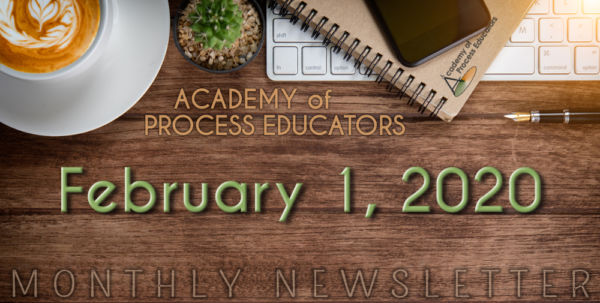|
Process Education is a brand. If I had to specify what it is a brand of, I guess I would say ‘teaching and learning advancement’. Our customer base, or group of people we want to attract, are educators who are interested in improving their teaching, and their students’ learning. I am not sure what level of educator we are interested or not interested in. Certainly post secondary educators, but what about high school, earlier, even kindergarten? I’m just not sure. So, besides the desire to improve self and others, what qualities do our ‘customers’ have?
1. They (or their institution) can afford to be a part of the Academy of Process Educators.
2. They desire to take an active role in their own self-improvement. (I may be off base here. If you feel I am, correct me and we can discuss it.)
3. They are passionate about the life success of the students under their care.
Normally when describing ideal customers, demographics are included, but in this case, what demographics really matter? Age, race, gender, socio-economic status and so on don’t seem that important. For most academic groups being retired would make a potential member less desirable, but we have a lot to get done, and as has been demonstrated by our incredible retirees, being retired allows one to get a lot done. So, our recruiting field seems pretty open.
What follows are tips I got from social media managers on how to engage an audience (our potential customers) on social media.
1. The purpose of a social media campaign/channel/post/strategy should be clear. My thought for the purpose of our social media channels is to build awareness of process education through building community.
2. Talk about your topic, not just your brand. People are turned off by constant selling, even if it’s subtle. If this is true, then I think anything related to personal or classroom improvement would be appropriate. Several years ago there was a ‘golden ratio’ that 80% of your posts would be informational, educational, or entertaining, and 20% would directly sell your product or service. People using social media have gotten smarter, and they realize that every post is a sales post to a certain extent, so that rule isn’t so golden anymore. The advice seems to point to your social media having a unique ‘voice’, which I’m not really sure what that means. As long as I’m doing the social media, that will mean I’m going to use some pre-created posts, ask some questions to spark interest in anything that might get educators to like or share, and share, to the extent I can, process education’s potential.
3. Reach out to people who might be interested in what you have to offer. One of my students has grown a club Instagram account from 0 to almost 1500 followers in less than a year using simple strategy of liking people’s posts and engaging with them. The results have been (besides the list of followers) great. The average CEO meeting draws 25-40 students, whereas a year ago it drew less than a dozen.
4. Share other people’s content. If some other group has a great tool, technique, or insight, share it on your page. (Give credit, of course.) Eventually, we’ll be sharing other people’s success stories with process education on our page, and they will feel great about that!
5. Engage followers authentically, and by name. (I’ll try. If you’re helping - see below- you try too!)
6. Make your posts visual. People can’t be bothered with text. (Even academics I asked. Even academics, came the grave reply...)
7. Use hashtags. I came up with a hashtag once. #poundsign. Thought I was very clever. Hashtags are how savvy internet users find the info they’re looking for on social media. For now, we will need to follow on existing hashtags. No one is searching for ours yet, but as time goes on maybe #proced can be a thing.
8. Frequent posts. Scheduled. Not every post must be scheduled, but there should be a posting schedule. There are guidelines all over the place on this. I’m going to shoot for two programmed posts a day, Monday through Friday, and other stuff as I find it interesting. Most things will end up on Facebook, Twitter, and Instagram. If you’re helping with a single channel, you might push your content to the other channels as well, or we might start to differentiate over time. It’s really up to us right now because we’re starting from the ground floor.
9. Surveys, polls, contests, giveaways, conversations. If you are asking for engagement you are more likely to get it.
10. Finally, engage with the latest trends. This is where you might pick up lots of followers very quickly. As I write this, the top trending thing on Twitter is the #DoomsdayClock. That’s a bit morbid, but if I scroll down just a bit I find #nationalpieday and #thursdaymotivation. A brief post on either of those might cause someone to check out our homepage and seek more information.
What I would love from you:
1. If you are active on a social media, like our page and our posts when you see them.
2. Share the posts with your friends, especially those in our target area.
3. COMMENT on posts if you have something to say, or think it might promote discussion.
4. Volunteer to assist with ONE social media platform. This will involve occasionally making posts and reading and responding to comments.
5. If you’re passionate about process education and related subjects, share that passion outside of our social media outlets. Your activity on forums, message boards, and in question and answer sessions will make others perceive you as an expert in your field and make others aware of process education principles.
If you have thoughts on the above, or would like to assist with the relaunch of our online outreach, please contact me at thomasnelson@southalabama.edu. |
